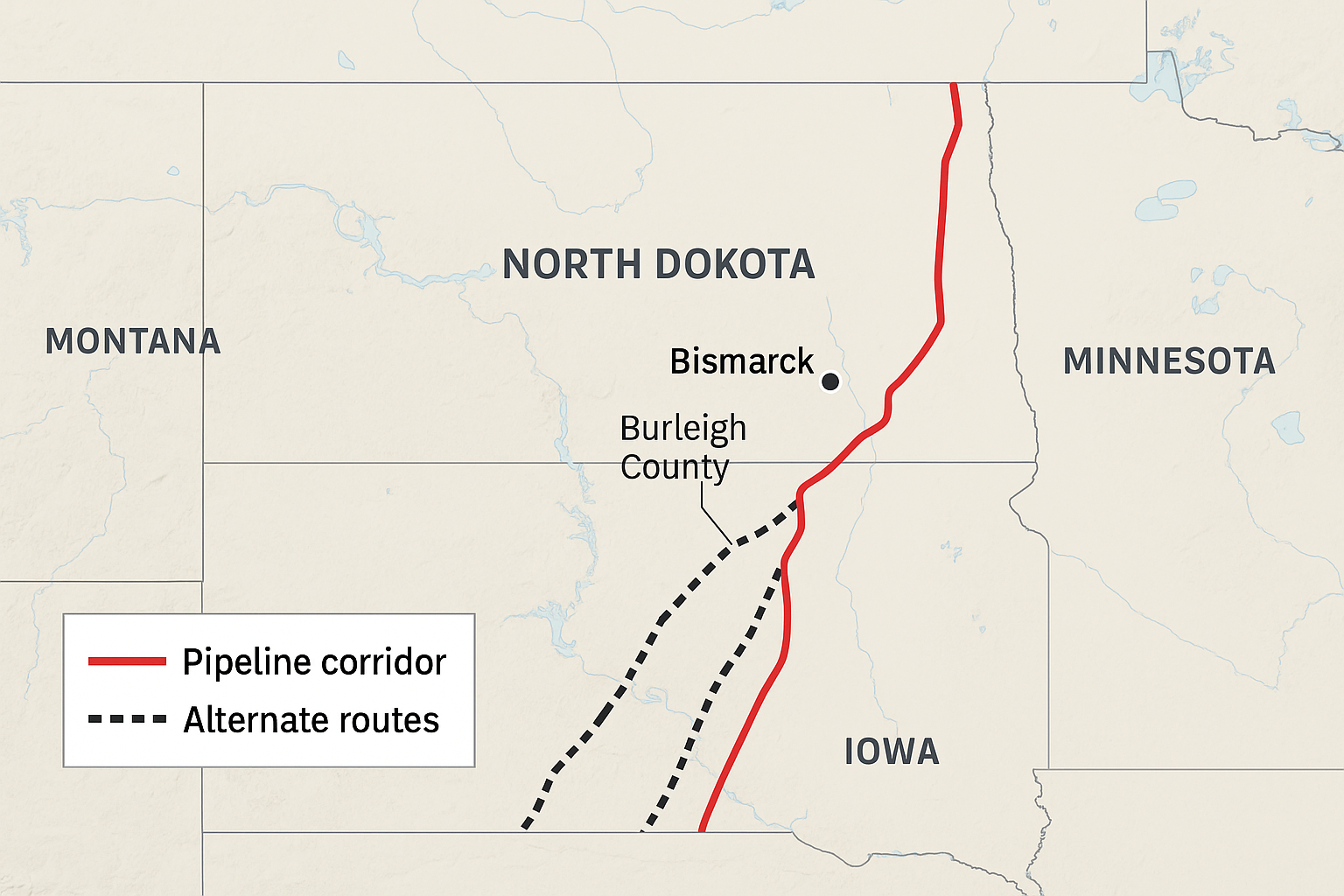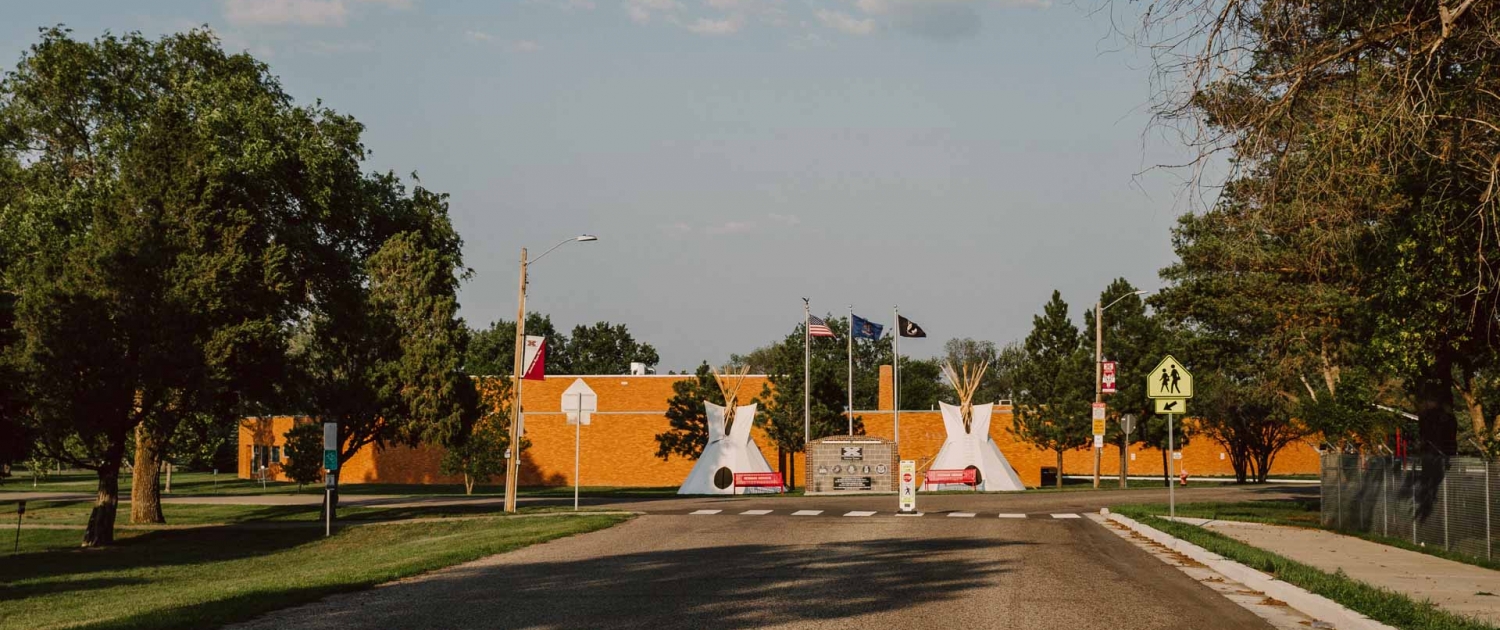Summit Carbon Solutions is reportedly exploring alternate routes for its proposed carbon dioxide (CO₂) pipeline — potentially bypassing North and South Dakota entirely.
For Bismarck-area residents and policymakers, that signals a possible dramatic shift: could the city lose its role as a host region — or gain relief from contentious land disputes?
The original Summit pipeline plan aimed to funnel CO₂ emissions from 57 ethanol plants to underground storage in western North Dakota, crossing Burleigh County.
In 2024, North Dakota regulators approved a 333-mile segment within the state, anchoring Bismarck’s region as a key corridor.
Yet two court rulings in 2025 cleared the way for landowner lawsuits to proceed, many focused in Burleigh County, which includes Bismarck.
Meanwhile, in South Dakota, a new law bans the use of eminent domain for carbon pipelines — a legislative blow that’s pushing Summit to revisit its routing strategy.
In short, the pipeline’s original path through Bismarck-area lands may be losing momentum — or at least being reevaluated — and that could reshape local land agreements, tax implications, and environmental concerns.
“This could be a big loss for Bismarck-area tax base.”— Local economic development official (name withheld), noting that the pipeline would have brought infrastructure payments, easements, and local services opportunities.
“We’re being cautious but ready.”— Burleigh County planner, at a recent county meeting, signaling that local zoning and emergency readiness will be under review if Summit shifts course.
Landowners awaiting easement offers may find the project stalled or canceled for their parcels. Bismarck and Burleigh County may lose anticipated infrastructure grants, local service payments, or road support tied to pipeline work.
If routed differently, Bismarck may escape direct pipeline exposure — but could remain concerned about storage facility proximity or CO₂ leak risks elsewhere.
City and county officials may need to revise land-use plans and outreach strategies depending on the new route.
As Summit Carbon Solutions signals a possible reroute, Bismarck finds itself at a turning point. Will the city be relieved of pipeline tensions — or sidelined from promised development gains? The coming weeks may determine whether Bismarck remains central to the CO₂ corridor or becomes an afterthought.


